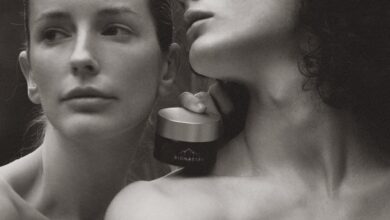Minimalism isn’t all about owning less but about occupying less in your mind. A cluttered space is in the eye of the beholder, but what requires a space to be “minimalist” means you only keep items you actually need, and therefore, those few items have meaning. If you feel overwhelmed in your workspace, try approaching the workday with the following tips and tricks.
1. Less Paperwork, More Digital Work
Our workspace directly influences our mood and ability to focus, regardless of where it’s located. It’s important to stay inspired to quicken your workflow, so remove anything that may take too much time out of your workday. For example, if you need a graphic design contract signed, you could send your client a PDF rather than printing out a hard copy.
Using PDF contracts will limit paperwork, but it will also remove file folders and cabinets from your office. Gone are the days of searching through paperwork for that one contract you need. Now, all you need to do is search for the file on your computer, click and send.
2. Only Use One (or Two) Communication Methods
Your clients may have a preferred communication method, but you could become overwhelmed if you’re using more than 4 at a time. Consider which communication tools bring you the most joy and quickly scrap the rest. This rule isn’t limited to communication tools, as you should also remove memberships, subscriptions, groups, accounts, and followers that aren’t necessary.
Promote minimalism by waiting to respond on your own time. The Internet has made it customary to respond immediately, but you don’t have to assign that much meaning to likes, comments, and followers, or they could drain your energy and creativity. You can create more time for yourslef by using job scheduling software from https://www.jamsscheduler.com/ to help a more efficient workflow.
3. Concentrate 4 Hours at a Time
While the 40-hour workweek and 8-hour workday are norms, research shows that the optimal hours for productivity are a maximum of 4 hours. For most of us, it isn’t possible to limit our work hours, but you can separate your workday into two 4 hour blocks. A 9-5 job will give you a 30-minute break, but you may forget to take them depending on how busy you are.
Prioritize taking breaks during the day to stay happy and healthy. During your breaks, don’t focus on the work you need to get back to. Instead, try to meditate, plan your schedule for when you get home or speak to your co-workers or friends as a way to unwind.
4. Give Yourself Space to Relax
No one can constantly work because we’ll eventually burn ourselves out. We already discussed the importance of taking breaks, but scheduling rest time after work is absolutely necessary as well. Too much time is wasted worrying about the work week, so much so we don’t actually relax. Give your mind space to wander, think, and explore to promote good mental health.
After taking a few moments to think, fill your day with physical activities like exercise or long walks. Creating a strong “rest ethic” will give your mind space to work out problems and allow creative ideas to emerge, which is a must for any working individual.
5. Work Isn’t Your Identity
What you do during your workday doesn’t define who you are, but we’re often so tied up in our work that we make it our prime personality trait. There’s nothing wrong with being proud of your career, but it shouldn’t prioritize your relationships, health, and wellbeing. Becoming a workaholic is not a desirable outcome and shouldn’t be praised as it affects your health.
The minimalist question comes into play here: what do you value most. If the answer is your work, that isn’t necessarily bad, but it could mean you need to take more care of yourself and to ensure your work isn’t a distraction from the more important things in life.




